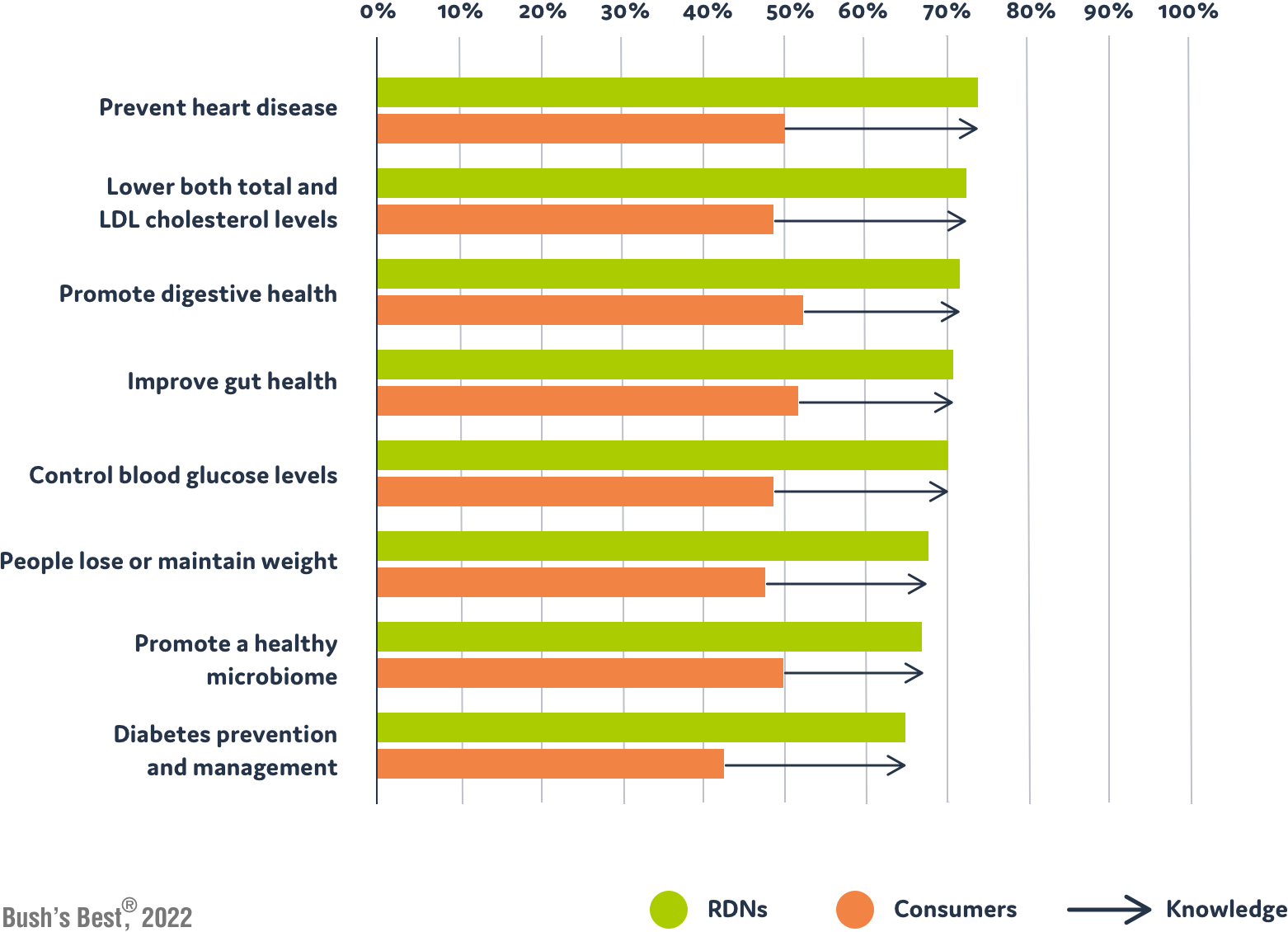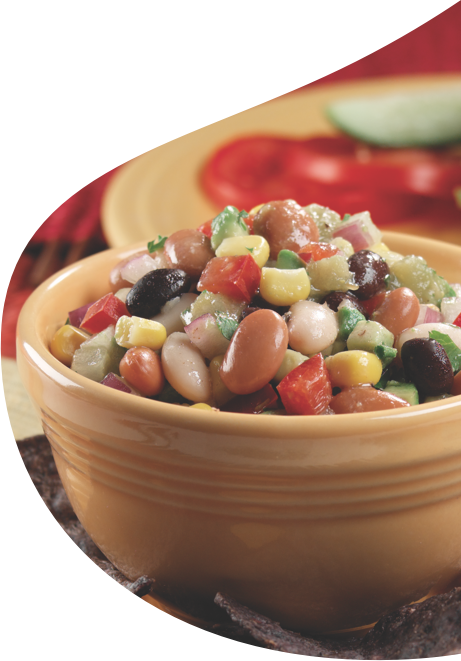While beans have been nourishing the world for centuries, recently they have been making new headlines.
Newly published peer-reviewed research shows that beans are positively associated with overall nutrient intake, nutrient adequacy, diet quality, and biomarkers of health. Their high fiber content makes them great for individuals trying to reduce or manage their weight. Their low glycemic index makes them ideal for people with diabetes. Their plant-based natural protein content makes them perfect for those looking to reduce or eliminate animal proteins. Beans have been shown to help prevent heart disease, lower cholesterol, and improve gut health. In short, beans are considered by some to be Mother Nature’s most perfect food.
Research conducted in 2022 among RDNs and consumers revealed that RDNs know most of this information. However, consumers do not. Cannedbeans.org needs your help to educate consumers about how simply, nutritiously, and deliciously canned beans can positively impact health. In addition to providing objective reasons why it is important to eat beans more often, Cannedbeans.org is packed with recipes and usage suggestions to add more beans to the diet.
Most Registered Dietitian Nutritionists (RDNs) Know Canned Beans CAN Help!

Today, 94% of RDNs surveyed make a conscious effort to include canned variety beans in their diets. Beyond nutrition, they are drawn to the sustainability beanefits of beans. Their low-carbon footprint and ability to thrive with limited water make them among the most sustainable foods in the world. Steel cans are one of the safest and most sustainable options for food packaging, locking in nutrition while reducing food waste. Thus, beans benefit human health and planet health.



